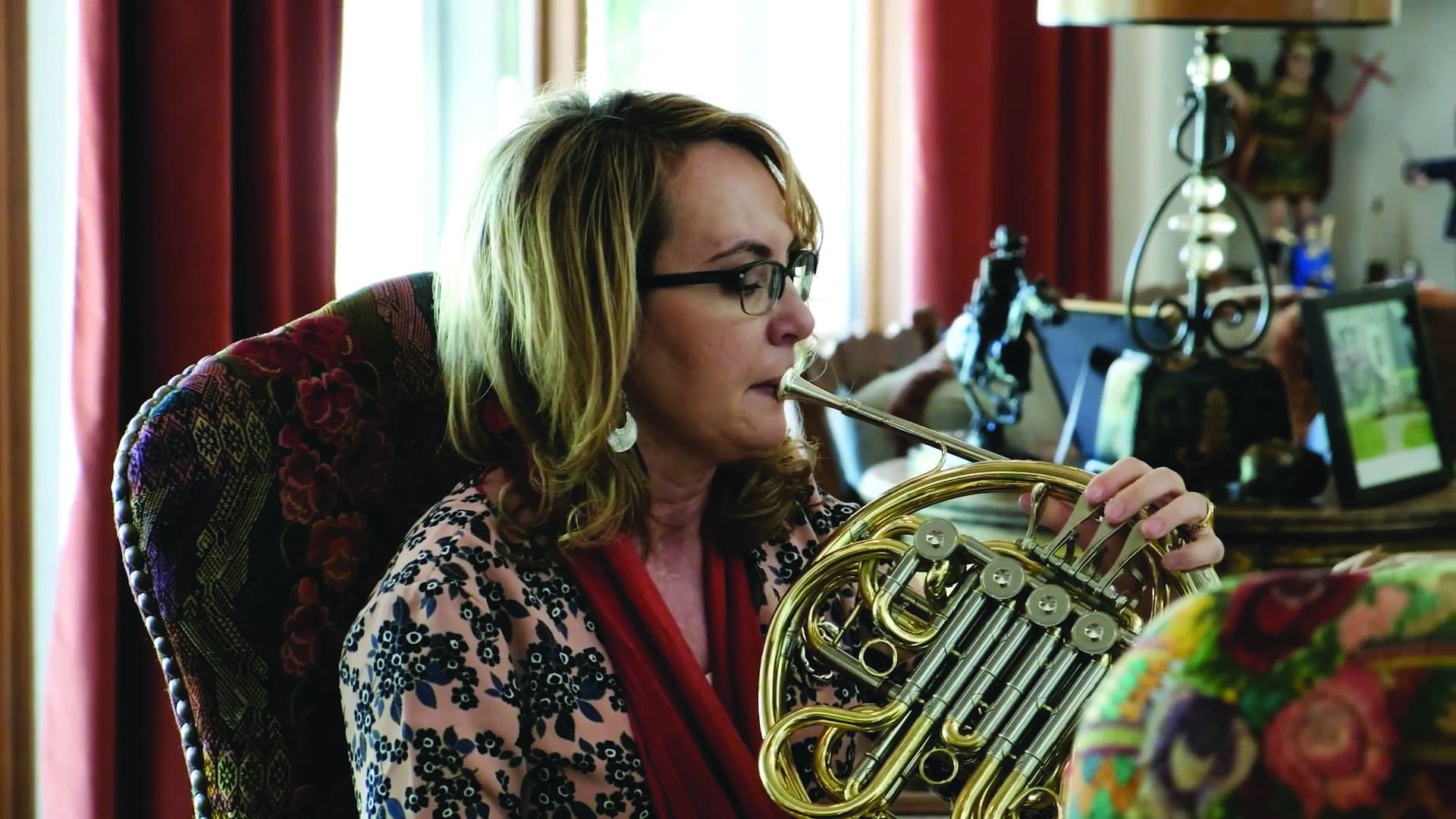/ News Posts / Gabrielle Giffords: ‘Fighting Makes Me Stronger’
Gabrielle Giffords: ‘Fighting Makes Me Stronger’
By David Nabb
This article first appeared in the January 2021 issue of Teaching Music.
It’s rare for music education and music-making to benefit from unsolicited promotion in a high-profile, prime-time television broadcast. Nevertheless, the 2020 Democratic National Convention featured an inspiring moment with former Congresswoman Gabrielle Giffords playing solo French horn. (If you missed it, you can find the video on YouTube.)

Photo courtesy of Gabrielle Giffords
Giffords has dedicated her life to public service. As the youngest woman ever elected to the Arizona State Senate, she represented her community in the Arizona Legislature from 2000 to 2005, and then in Congress from 2006 to 2012.
“I’ve known the darkest of days, days of pain and uncertain recovery. But confronted by despair, I’ve summoned hope,” Giffords said in a recorded speech that played after a clip of her playing the French horn aired.
“Confronted by paralysis and aphasia, I’ve responded with grit and determination,” the former congresswoman said. “I put one foot in front of the other. I found one word, and then I found another. My recovery is a daily fight, but fighting makes me stronger. Words once came easily; today I struggle with speech. But I have not lost my voice.” The DNC speech was the longest Giffords has given since she survived a mass shooting in 2011.

Photo courtesy of Gabrielle Giffords
Exclusively for Teaching Music, former Congresswoman Giffords took time to answer a few questions about her continued music-making.
Teaching Music: When did you start playing horn? How much was it a part of your life?
Giffords: I started playing the French horn in fourth grade and continued all the way through college. I was even part of a civic orchestra for a while, so I would say it was a major part of my life for a long time. Once I started my professional career, I couldn’t keep up with my practice, but I would always move my horn with me wherever I went.
TM: Can you tell us about the horn playing you have done since your injury?
Giffords: I started working with a French horn instructor about three years into my recovery. She was a professional musician in Germany for 30 years before she retired to Tucson. She wrote to me and Mark when she heard I used to play the French horn and offered to help me relearn it. She has been incredible to work with and so patient with me. Prior to the pandemic, we were meeting every other week. Like all good teachers, she always pushes me to practice more.
TM: How important has it been to you to start playing your horn again? What motivated you?
Giffords: Through each step in my recovery, I like to challenge myself to do more and regain abilities I once had. My love of music made returning to the French horn a very logical challenge to me.
“Playing the French horn has even helped me regain some of my ability to speak. Without musical intonation practice, I wouldn’t be able to deliver many of the speeches I give.”
TM: How important are music-making and the arts in general to our country, our society, our children?
Giffords: Creative self-expression makes life so much richer. During this pandemic, I’ve been so inspired by the artists who have found new, out-of-the-box ways to continue connecting with their audiences. I was also very excited to collaborate with Phoenix-based artist Tyson Krank and DC-based artist Rebecca Williams for a new line of merchandise that I think captures the courage and perseverance at the core of the fight for gun safety.
TM: How important have the arts been to your recovery?
Giffords: The arts have been instrumental in helping me maintain hope throughout my recovery. Playing the French horn has even helped me regain some of my ability to speak. Without musical intonation practice, I wouldn’t be able to deliver many of the speeches I give.
A Surge of Inspiring Musicians
Recent decades have seen a surge in the number of persons with disabilities beginning or returning to music study and performance. Former Congresswoman Giffords is one of the most high-profile Americans to return to music-making after experiencing a disabling condition. To learn more about music-making for people with disabilities, visit https://www.ohmi.org.uk/ or https://anotherwaytoplay.org/.
About the author:
 After surviving a catastrophic stroke, David Nabb worked with Jeff Stelling to develop a professional saxophone that can be played with the right hand only. In 2013 at Bruckner Hall in Linz, Austria, Nabb and Stelling received the first-ever OHMI/Ars Electronica Prize for their work on this “toggle-key” saxophone.
After surviving a catastrophic stroke, David Nabb worked with Jeff Stelling to develop a professional saxophone that can be played with the right hand only. In 2013 at Bruckner Hall in Linz, Austria, Nabb and Stelling received the first-ever OHMI/Ars Electronica Prize for their work on this “toggle-key” saxophone.
Did this blog spur new ideas for your music program? Share them on Amplify! Interested in reprinting this article? Please review the reprint guidelines.
The National Association for Music Education (NAfME) provides a number of forums for the sharing of information and opinion, including blogs and postings on our website, articles and columns in our magazines and journals, and postings to our Amplify member portal. Unless specifically noted, the views expressed in these media do not necessarily represent the policy or views of the Association, its officers, or its employees.
February 2, 2021. © National Association for Music Education (NAfME.org)
Published Date
February 2, 2021
Category
- Social Emotional Learning
Copyright
February 2, 2021. © National Association for Music Education (NAfME.org)




